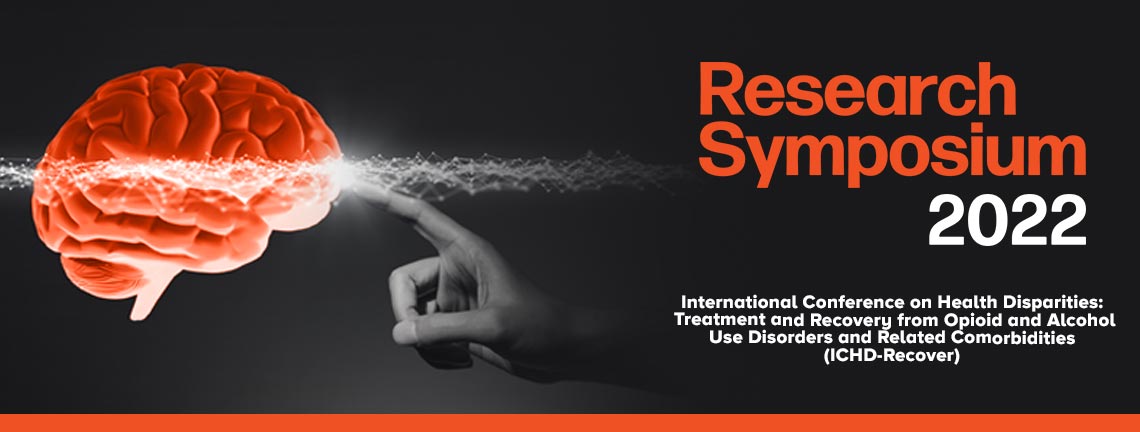
Posters
Presentation Type
Poster
Discipline Track
Translational Science
Abstract Type
Research/Clinical
Abstract
Background: COVID-19 has impacted medical education in many ways including altering in-person rotations, limiting research opportunities, and introducing additional financial strain for medical students. With these unprecedented changes, we were interested in examining the impact of COVID-19 on medical students’ well-being and choices surrounding their upcoming resident medical education.
Methods: An online questionnaire was written and distributed via Qualtrics to 4th year medical students across Texas from May to December 2020. The inclusion criteria were MD or DO U.S. medical students planning to apply to residency in the 2020-2021 cycle.
Results: A majority of participants (78.05%) identified as a minority in medicine due to race/ethnicity, gender, sexual orientation, first-generation or low-socioeconomic status. Prior to COVID-19, 26.19% planned to submit 0-39 applications, 47.62% to submit 40-79 applications, and 26.19% to submit 80-119 applications. During COVID-19, 82.5% of participants increased their number of planned residency application submissions with the highest being 160-199 applications. Regarding the increase, participants cited reasons such as limited opportunities to complete away rotations, secure letters of recommendation, conduct research, mentorship, and financial hardships. Before the pandemic, 17.07% felt strongly concerned about matching into their specialty of choice. This nearly doubled to 33.33% during the pandemic. Based on student responses, it shows that COVID-19 also affected their well-being in terms of access to food, physical health, mental health, family, finances, as well as use of alcohol, tobacco, and illicit drugs.
Conclusion: This survey allowed medical students to express how the COVID-19 pandemic affected their overall well-being and altered their behaviors for the 2020-2021 residency application cycle. The increased number of residency applications seems to align with multiple underlying stressors from the medical student applicants. Given that a majority of the survey participants are minorities in medicine, we are unable to determine if the level of impact is unique to this group. We predict that the impact of COVID-19 on minority students in Texas may demonstrate significant differences in key areas that affect student well-being both at home and at school. These results show several areas of opportunity for medical schools to increase support for students during significantly stressful events during their medical training.
Academic/Professional Position
Medical Student
Mentor/PI Department
Pediatrics
Recommended Citation
Feng, Jessy; Orta, Sabrina; and Berry, Lori, "COVID-19's Impact on Medical Students' Wellbeing and Residency Choices" (2023). Research Symposium. 45.
https://scholarworks.utrgv.edu/somrs/2022/posters/45
Included in
COVID-19's Impact on Medical Students' Wellbeing and Residency Choices
Background: COVID-19 has impacted medical education in many ways including altering in-person rotations, limiting research opportunities, and introducing additional financial strain for medical students. With these unprecedented changes, we were interested in examining the impact of COVID-19 on medical students’ well-being and choices surrounding their upcoming resident medical education.
Methods: An online questionnaire was written and distributed via Qualtrics to 4th year medical students across Texas from May to December 2020. The inclusion criteria were MD or DO U.S. medical students planning to apply to residency in the 2020-2021 cycle.
Results: A majority of participants (78.05%) identified as a minority in medicine due to race/ethnicity, gender, sexual orientation, first-generation or low-socioeconomic status. Prior to COVID-19, 26.19% planned to submit 0-39 applications, 47.62% to submit 40-79 applications, and 26.19% to submit 80-119 applications. During COVID-19, 82.5% of participants increased their number of planned residency application submissions with the highest being 160-199 applications. Regarding the increase, participants cited reasons such as limited opportunities to complete away rotations, secure letters of recommendation, conduct research, mentorship, and financial hardships. Before the pandemic, 17.07% felt strongly concerned about matching into their specialty of choice. This nearly doubled to 33.33% during the pandemic. Based on student responses, it shows that COVID-19 also affected their well-being in terms of access to food, physical health, mental health, family, finances, as well as use of alcohol, tobacco, and illicit drugs.
Conclusion: This survey allowed medical students to express how the COVID-19 pandemic affected their overall well-being and altered their behaviors for the 2020-2021 residency application cycle. The increased number of residency applications seems to align with multiple underlying stressors from the medical student applicants. Given that a majority of the survey participants are minorities in medicine, we are unable to determine if the level of impact is unique to this group. We predict that the impact of COVID-19 on minority students in Texas may demonstrate significant differences in key areas that affect student well-being both at home and at school. These results show several areas of opportunity for medical schools to increase support for students during significantly stressful events during their medical training.

